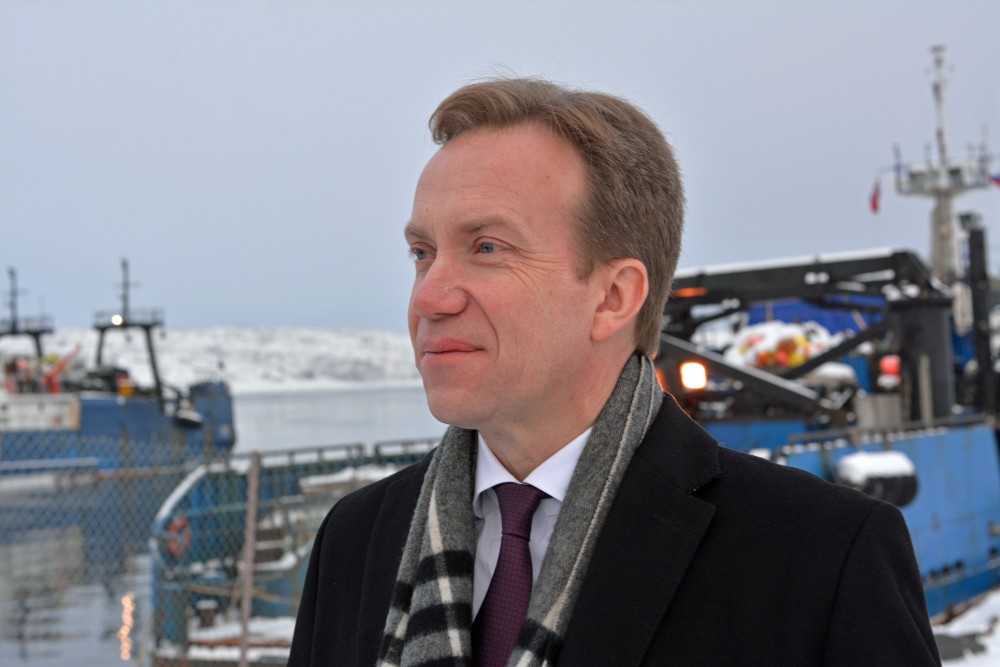Brende: Law of the Sea and International Law is the ‘Constitution’ of the Arctic

Visiting Norway’s Arctic capital Tromsø this week, Børge Brende invited the public to debate the foreign policy choices facing Norway.
“In the Arctic we have shown that we can hold on to cooperation despite negative developments other places. We must continue so for the future. Also Russia has a self-interest in the Law of the Sea and International Law in the north,” the Norwegian Foreign Minister said.
He praised what Norway and Russia have accomplished regarding management of joint fish-stocks in the Barents Sea.
“What we have achieved regarding quotas and management is something both Russia and Norway are proved of.”
Brende had invited Sergey Lavrov to attend Arctic Frontiers, Norway’s largest gathering for talks between stakeholders in the circumpolar north, but the Russian Foreign Minister turned down the invitation.
Now, Brende considers the possibility of attend Russia’s own conference on Arctic issues, to be arranged in Arkhangelsk in late March. The Norwegian Foreign Minister has not been in Russia since Moscow’s annexation of Crimea three years ago.
[Norway may participate in Putin’s Arkhangelsk Arctic conference]
“We need to maintain relationships and communications with nations that don’t share the same set of values as ours. Simultaneously we have to honest and open about our values and should be able to bring up difficult issues,” Børge Brende said in the debate.
Broad contact in the north
People-to-people cooperation, search- and rescue, fisheries, nuclear safety and political dialogue were examples Brende mentioned to be continued.
Professor Kari Aga Myklebost with UiT – Norway’s Arctic University, said it is more important than ever before to continue with broad contacts with Russia.
“Russia has been sliding towards authoritarianism, no doubt about that, but Norway should still maintain a broad dialogue,” she said.
Dialogue prevents misunderstandings
Being expert on cross-border historic relations between the two countries, Aga Myklebost argues that broad dialogue is the best way to prevent misunderstandings in times of trouble.
“Norway should invest in good relations with Russia, whoever is in charge politically in Kremlin. Being a small neighbour to a large nation, this is in Norway’s own interest,” she says.
Although underlining that Russia’s annexation of Crimea and destabilizing other regions in Ukraine is not a bi-lateral issue between Norway and Russia, rather a European, Russian problem, Børge Brende pointed to negative development trends in cross-border relations.
Traveling across Barents Russia as Minister of Environment some 15 years ago, Børge Brende met with environmental groups. “They do now have to register themselves as foreign agents. Also sexual minorities have problems. And developments in Russia are very centralized.”
Brende said it is his job as Foreign Minister to make note of this.
Professor Kari Aga Myklebost said it is possible to have two thoughts at once.
“Stand firm on values and give Russia clear messages, and on the other side maintain a broadest possible dialogue with civil society, between officials and hopefully also at the political level.”